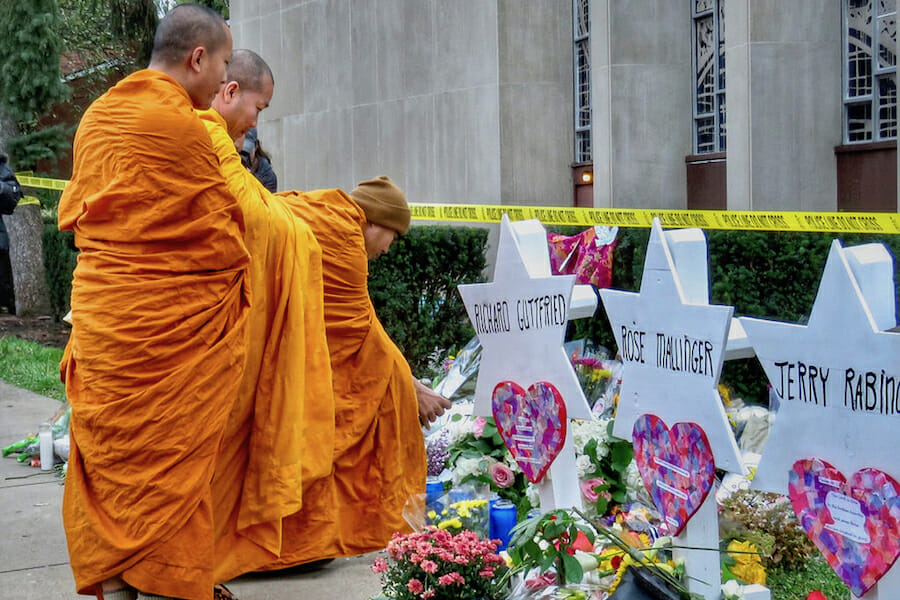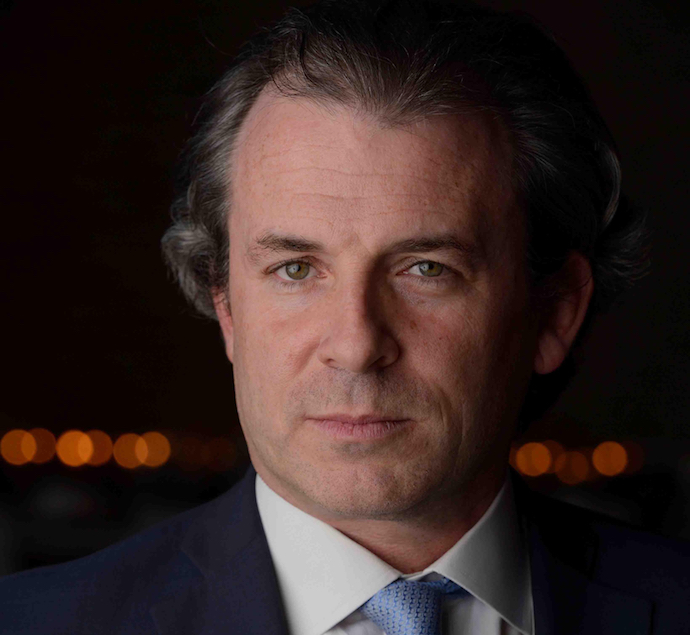
Culture
Interview with Dan Rosen of the American Jewish Congress
To understand how anti-Semitism is on the rise not just in the United States, but globally as well, I turned to the American Jewish Congress for answers.
Below is the text of my interview with Dan Rosen, board member and senior leader, of the American Jewish Congress. The interview was conducted via email.
The mass shooting at the Tree of Life Synagogue was in late October. Can you describe what impact the shooting has had on American Jews and where the community goes from here?
What the Pittsburgh shooting really did was reveal how serious and dangerous any and all anti-Semitism can be. Anti-Semitism has absolutely been on the rise in America in the last few years, but most incidents have been nonviolent, and I think many Jews, as well as non-Jews, could become complacent. But this immense display of violence demonstrates that all of these seemingly small incidents were part of a larger trend that, if unchecked, leads to violence. Going forward, we must speak out against anti-Semitism and hate wherever they appear, because they do add up and build momentum.
Has the shooting had any impact on your organization’s mission and goals?
Our mission has not changed. But Pittsburgh certainly alerted us to how dire the situation is becoming and how necessary organizations like the American Jewish Congress are. With the shooting comes a need for extraordinary effort to fight antisemitism. Israel and international Jewish communities will always be high priorities for us, but it’s hard to fight for Jews abroad when Jews don’t feel safe here.
Anti-Semitism has always lurked beneath the shadows in American politics and society. In the past few years, it has become more overt. George Soros conspiracy theories and the rally in Charlottesville are prime examples. Why is anti-Semitism coming out from the shadows?
Anti-Semitism is not only emerging, but also spreading, and those are different but connected processes.
Our society is increasingly divided. Americans increasingly blame their problems on others – other parties, other states, other ethnic or religious groups – and our politics as a nation reflect that. And when people need a scapegoat, anti-Semitism is almost inevitable. For centuries, Jews have been used as the ultimate scapegoat, and that idea still lies dormant deep within our culture. When people feel desperate and helpless and cannot find someone to blame, they will eventually look to the Jews. Additionally, different forms of hate feed into one another, and once society becomes more willing to hate one group, it also be willing to hate other groups.
Anti-Semitism always lurks, in the dark corners of society, but the internet has increasingly given anti-Semites different ways to gather as a community. Where once anti-Semites were forced to keep their hatred private, or at least localized, now they can be connected with other hateful individuals around the country. They reinforce each other’s views and create echo chambers in which these toxic worldviews grow and multiply and convert others. The Pittsburgh shooter was very active in white supremacist social media communities, and posted immediately before entering the synagogue. He is not the first mass shooter to have been radicalized by a hateful online community; we must recognize that online hate does not stay online, and is no less real than an in-person meeting of anti-Semites or racists.

Outside of the U.S., what global politicians have contributed to the anti-Semitism rhetoric and what effect does this bring on the global community?
The most extreme examples are leaders who openly call for the destruction of Israel and the Jewish people. The Iranian regime calls routinely for the annihilation of Israel, uses horribly anti-Semitic rhetoric, and propagates – perhaps even believes – absurd Jewish conspiracy theories, such as Israel controlling the weather. Hamas leaders use the most disgusting and appalling language for Jews, and the Hamas Charter, which is still the organization’s foundational document, references age-old anti-Semitic tropes and calls for the genocide of the Jews.
Many are quick to dismiss such leaders as outliers and extremists with empty words. But when these beliefs are given an international platform and Iran can spew this vitriol at the United Nations, or when the UN and world leaders fail time and time again to condemn Hamas – or even justify it – then it becomes normalized.
The Palestinian Authority is also complicit in this, though to a lesser degree. PA President Mahmoud Abbas has a long record of Holocaust denial, but it’s almost never talked about, or it’s explained away. That matters, especially when Palestinian schools and television, in both Gaza and the West Bank, teach children to deeply hate Israelis and Jews and tells them killing Jews is good.
Speaking of Holocaust denial, the Polish government passed a bill last year rejecting hard evidence of Polish complicity in the Holocaust and preventing anyone from suggesting that the Polish people played any role. This essentially shuts down Holocaust research, education, and free speech in Poland. When world governments deny the Holocaust, it legitimizes Holocaust denial in the eyes of deniers and would-be deniers around the world.
Broadly speaking, though, any world leader or public official who uses, enables it, or fails to recognize anti-Semitic speech is contributing. We don’t arrive at Pittsburgh from nowhere; that comes from years of slowly encroaching anti-Semitism that becomes normalized bit by bit. So when people like Jeremy Corbyn displays casually anti-Semitic beliefs and language, and he is allowed to get away with that over and over with little to no consequence, it becomes normalized in the public view, and it adds up.
The mid-term elections saw the Democrats take the U.S. House of Representatives by a fairly significant margin. What, if any, impact do you predict on U.S.-Israeli relations?
I don’t expect that this will have a significant impact on U.S.-Israel relations. The majority of Democratic and Republican members of Congress support Israel and our relationship to it. Yes, some younger Democrats are taking less pro-Israel stances, but I believe that for the most part, their time serving on Capitol Hill will show them why Israel is such a crucial ally for us and why American support of Israel matters.
Donald Trump has been steadfast in his support for Israel. He has taken steps in cutting off funding to the UN Relief and Works Agency for Palestine Refugees (UNRWA). Does this help or hinder the peace process?
In the long run, this is an asset to the peace process. One of the largest obstacles to peace is that Israel is talked about in different terms from any other country, and the situation of Israelis and Palestinians is treated as somehow exceptional. It prevents the world from looking at the conflict in a practical way. The United Nations significantly contributes to this issue, and cannot be a fair international body if it can’t look at Israel objectively.
UNRWA is an example of this. The world faces so many refugee crises, but Palestinian refugees are the only ones with their own UN body like this; the rest fall under the UN High Commission for Refugees (UNHCR). So the emphasis on UNRWA codifies this idea that the Israeli-Palestinian conflict cannot be handled by the same institutions or rules that other difficult global conflicts are handled by. UNRWA also defines Palestinian refugees differently than other refugees. And that’s not even touching on UNRWA’s role in funneling UN funds into Hamas terror operations, or UNRWA schools in Gaza teaching vile anti-Semitic beliefs and horrible lies about Israel to young children.
Now, many people do not realize these things, and as a result might misunderstand and be frustrated by the U.S. decision to cut funding to UNRWA; Palestinian leadership certainly did not take it well. But I believe in the long run, it’s a step in the right direction for a lasting peace.
Is an Israel-Palestine peace process possible as long as Hamas is in power?
Not a final, complete peace process, no. While Hamas is in power, Israel and Palestinian Authority leadership can absolutely make steps toward peace, come to productive agreements regarding the West Bank, and lay the groundwork for a lasting peace. But ultimately, the peace process must involve a resolution to the situation in Gaza, and that cannot happen with Hamas in power.
Israel cannot negotiate peace with a terrorist organization that vows Israel’s destruction and the genocide against the Jewish people, including in its foundational documents, and that seeks violence against Israeli civilians. The Palestinian Authority cannot represent all Palestinians when many of them are under the repressive rule of Hamas. And the people of Gaza cannot thrive and grow when they are manipulated and brainwashed to view Jews as nonhuman oppressors from childhood on, and denied basic infrastructure and services in favor of rockets and terror tunnels.
Moreover, Hamas does not want peace. Hamas does not want Gaza to recover or get better. It will never accept less than the complete destruction of Israel. Hamas rejects aid from Israel and redirects international aid money into violence. The Hamas government cannot provide for the people of Gaza; it maintains power by manufacturing a continual violent struggle. Only when Hamas is no longer in power and Gaza is allowed to heal will a true Israeli-Palestinian peace be attainable.

